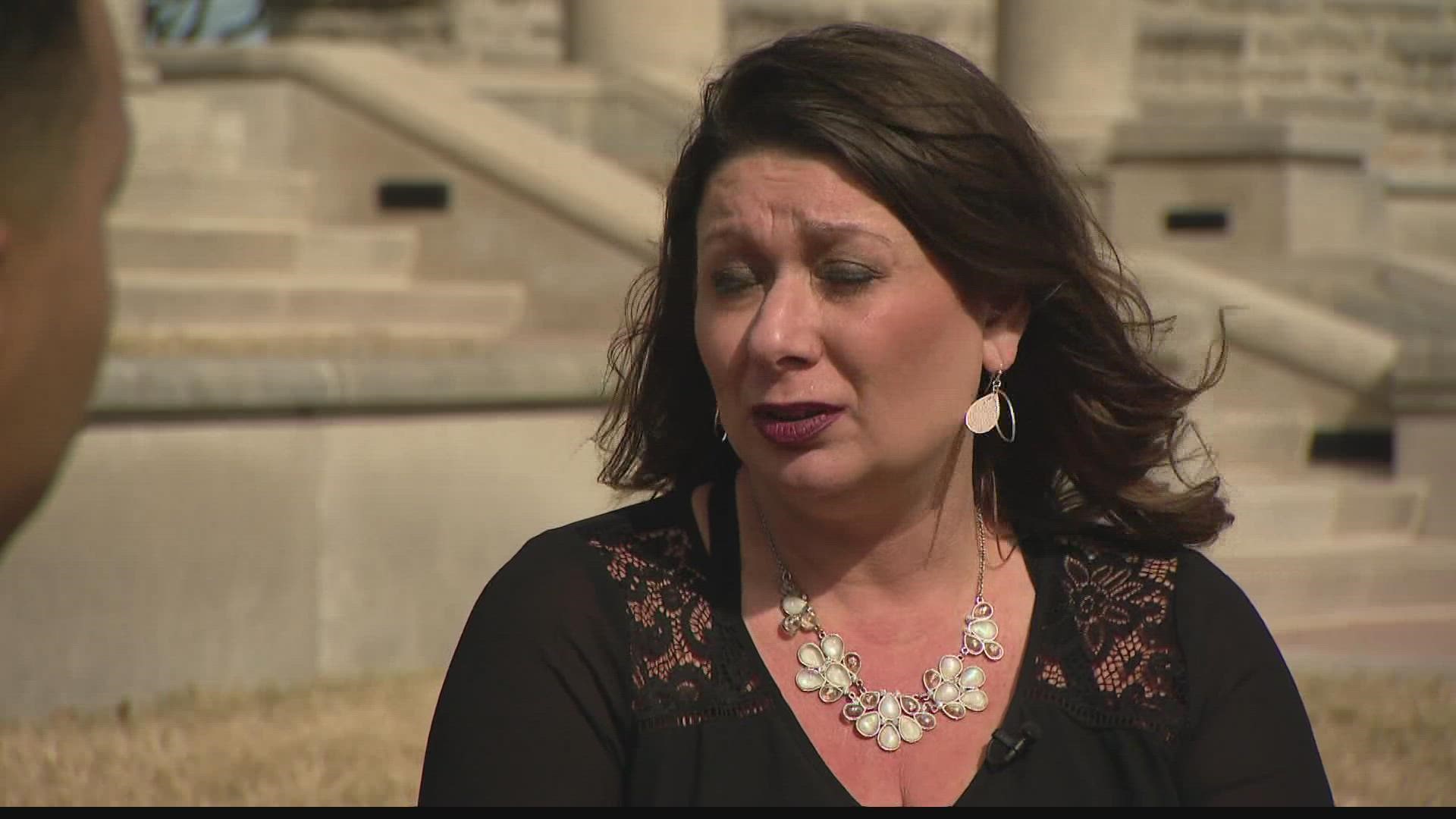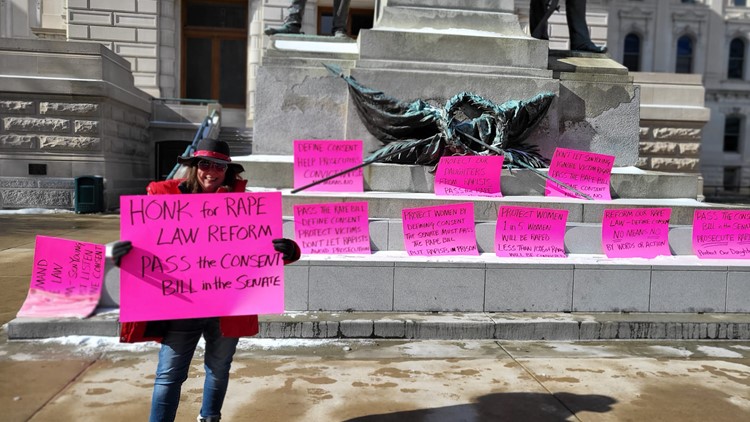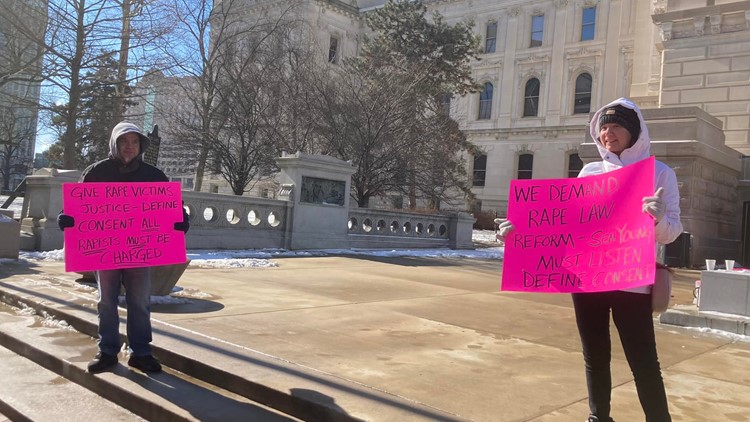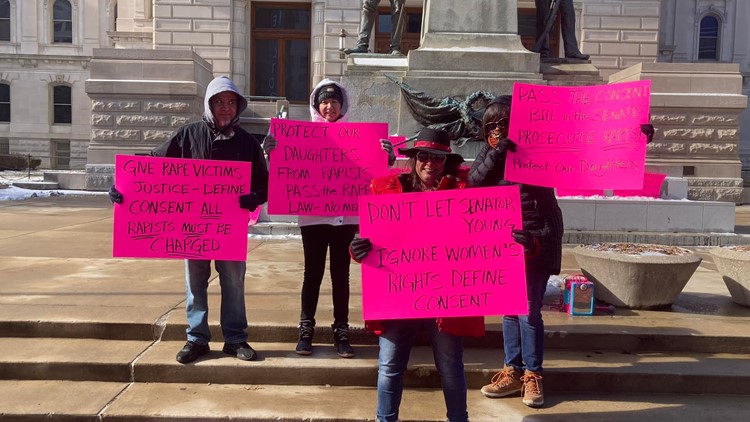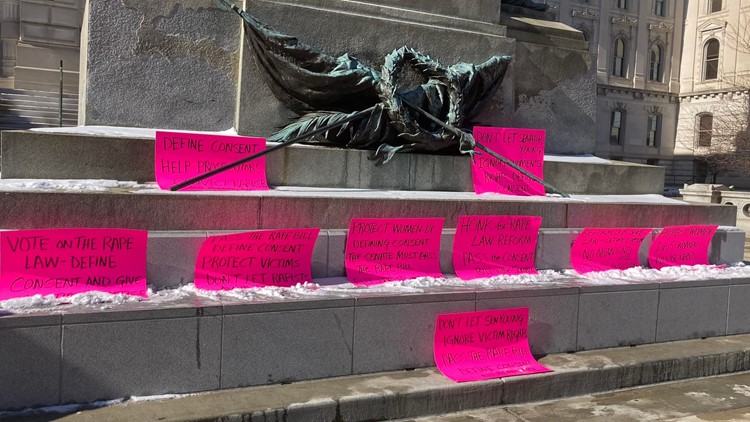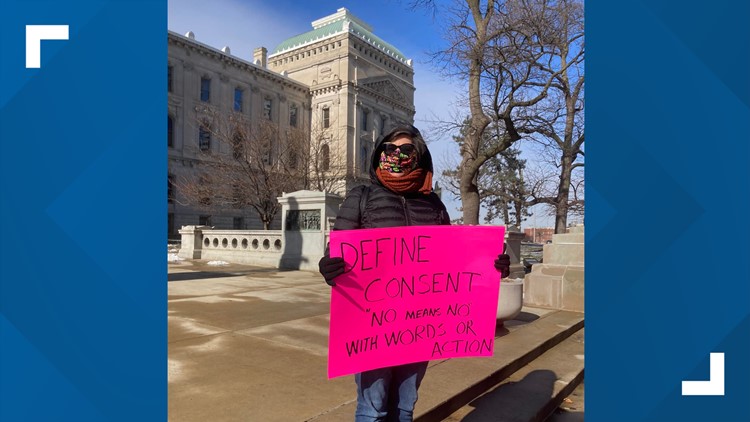INDIANAPOLIS — Lawmakers gave final approval Wednesday to a bill that aims to define consent when it comes to allegations of rape.
House Bill 1079 is on its way to Gov. Eric Holcomb's desk after the Senate unanimously approved the bill in a vote of 50-0. The bill was then reapproved in the House and sent to the governor for his signature.
The bill's supporters say if it becomes a law, consent would be defined — for the first time — when it came to considering an allegation of rape.
Right now, there is no such definition and some say that has left rape victims with a tougher path to find justice which, according to the Rape, Abuse and Incest National Network (RAINN), is already very difficult.
RAINN reports that out of every 1,000 sexual assaults, only 310 are reported to the police and only 50 of those lead to an arrest. Of those 50 arrests, just 28 result in a felony conviction and only 25 of those perpetrators will be incarcerated.
"I think this change in the law gives everyone hope," Carmel resident Stephanie Stewart said.
Stewart said she was raped by a salesman who came to her home in June 2019, to give a quote on potential work.
"He was at my house for four hours that day. And I don't remember most of it, I blacked out," Stewart said.
She said that she only has few memories of the incident.
"One of which I was pushing him off of me saying, 'Stop! Stop! Stop!,' the next being faced down, I don't know, it was like I had a paralytic. I couldn't move, I couldn't speak I knew he was hovering over me but I didn't eve know what was happening," she added.
Stewart said the man was never charged in her case.
"I felt like it was handed to the prosecutors on a silver platter and for them to tell me it was not enough, that they were worried a jury could not convict my perpetrator, I was devastated and shocked," Stewart said.
Right now in Indiana, sex without consent isn't a crime, unless there's proof of physical force, the threat of such force or the victim is incapacitated.
“Having a law that defines consent could mean that Indiana prosecutors will be more likely to take rape cases to court, and more survivors will find the courage to seek justice,” said Rima Shahid, chief executive officer of Women4Change. “It’s definitely a step toward making Indiana a better place for women, which is our mission.”
Across the country, 13 states and the District of Columbia have legal definitions of consent. Only nine of those states and Washington, D.C. require freely given consent or affirmative consent.
In late January, Stewart and other supporters of the bill braved the bitterly cold weather to rally in support of the bill on the statehouse steps.
The group was bundled up as they held signs that read, "We demand rape law reform" and "Give rape victims justice, define consent," among other messages.
"My justice is seeing that the law is changed and no one has to go through what I had to go through and have zero justice," Stewart said.
Group rallies in support of Indiana bill that aims to change definition of rape
Critics of the bill say adding new language to the current law brings the danger of not knowing where courts will land if there are challenges to the new language.
The bill still has to go through a few hurdles before it gets to the governor's desk. Once it does, Holcomb will have up to seven days to approve or veto the bill. If approved, it will go into effect on July 1, 2022.
RAINN reports that out of every 1,000 sexual assaults, only 310 are reported to the police and only 50 of those lead to an arrest. Of those 50 arrests, just 28 result in a felony conviction and only 25 of those perpetrators will be incarcerated.
"We need a law that says, 'No means no,'" said Carmel resident Stephanie Stewart. "If you do not get verbal or physical confirmation, you cannot assume consent, and that is why this law is so, so, so important."

